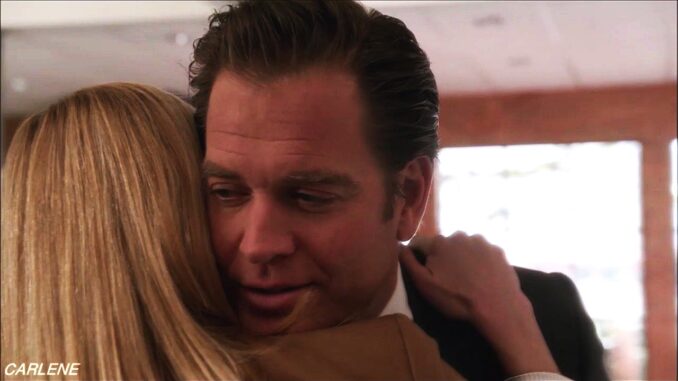
The Bell Tolls, and the Screen Goes Black: Tony’s Goodbye Scene That Changed the Show Forever
Every great story must end, but not all endings are created equal. For six seasons, The Sopranos redefined the landscape of television, dragging viewers into the messy, morally ambiguous world of Tony Soprano, a New Jersey mob boss grappling with panic attacks and the existential dread of his chosen life. As the final episode, "Made in America," unspooled, the weight of expectation was immense. Fans craved resolution, a definitive answer to Tony's fate. What they received instead was a narrative guillotine, a cut to black so audacious and unsettling that it didn't just end a show; it fundamentally altered how we perceive television finales, becoming "Tony's Goodbye Scene" not by offering closure, but by defiantly withholding it.
The scene itself, set in the mundane, greasy spoon familiarity of Holsten's diner, is a masterclass in building tension out of the utterly ordinary. Tony arrives first, sliding into a booth, selecting Journey's "Don't Stop Believin'" on the jukebox. The camera, usually so assured, starts to dart, to linger on faces: a shadowy man in a "Members Only" jacket, a group of Boy Scouts, a couple at the counter. Each jingle of the bell above the door, announcing a new arrival, becomes a tiny explosion of dread. Is this the moment? Is this the hitman? The banality of the setting—the red sauce on the table, the sizzling onions on the grill—only amplifies the palpable sense of an impending, unavoidable catastrophe. Meadow fumbles to park her car, AJ arrives, Carmela enters, and the family unit, so often fractured, begins to reassemble. The air is thick with normalcy, yet vibrating with unspoken threat.
Then, Meadow finally enters, the bell jingles, and the screen goes black. No credits, no music, no "The End." Just an abrupt, deafening silence. For many, it was a technical glitch, a cable outage, a cruel joke. For others, it was an infuriating act of artistic pretension, a denial of the satisfaction they felt they were owed. But in that jarring, immediate void lay its genius. It was a punch to the gut, a narrative void that forced the audience into a state of active participation, forever debating, theorizing, and interpreting.
The seismic shift this moment created was multifold. Firstly, it wasn't a "goodbye" in the traditional sense, but an obliteration of the very concept. Tony didn't get a grand final speech, a tearful farewell, or a definitive death scene. He simply… stopped. This refusal to tie up loose ends perfectly mirrored the show's central philosophy: life, especially one like Tony's, doesn't offer neat resolutions. It's a continuous state of anxiety, of looking over your shoulder, of the omnipresent threat. By cutting to black, creator David Chase didn't confirm Tony's death, but he confirmed the feeling of his life – that the threat was always there, lurking just outside the frame, or, in this case, just beyond our perception. The ending wasn't about if Tony died, but about the nature of his precarious existence.
Secondly, "Tony's Goodbye Scene" redefined the implicit contract between creator and audience. Before The Sopranos, television shows, even complex ones, generally aimed for a clear conclusion, a sense of finality. Chase, however, inverted this expectation, prioritizing thematic integrity over fan service. He argued that life simply goes on, or it doesn't, abruptly, without warning. This ending wasn't designed to be comforting; it was designed to be unsettling, to linger, to force introspection. It was, in essence, a rejection of the Hollywood blockbuster ending in favor of something far more akin to experimental theatre or abstract art.
Finally, and perhaps most profoundly, this scene changed the show forever by elevating its status from mere entertainment to profound artistic statement. The ensuing public outcry, the fervent debates across the nascent internet, the endless analyses of every frame leading up to that final cut – all cemented The Sopranos' place in the cultural pantheon. It wasn't just a TV show that ended; it became a benchmark against which all subsequent prestige dramas would be measured. Shows like Mad Men (with Don Draper's ambiguous enlightenment) and Breaking Bad (with Walter White's final, defiant moments) undoubtedly benefited from the trail blazed by Chase's uncompromising vision. The Sopranos taught us that an ending doesn't have to provide answers; sometimes, leaving us with a question is the most powerful answer of all.
Years later, the debate still rages. Was he shot? Did he live to endure more anxiety? The brilliance of "Tony's Goodbye Scene" lies in the fact that it doesn't matter. The jingle of that bell, the sudden, absolute darkness, the abrupt severing of our connection to Tony Soprano – that was the show's final, unforgettable lesson. It was a goodbye not to Tony, but to our comfortable expectations, a stark reminder that in a world steeped in moral compromise and inevitable consequence, sometimes the truest ending is no ending at all, just a sudden, silent void where life used to be. The bell still tolls in our minds, forever.